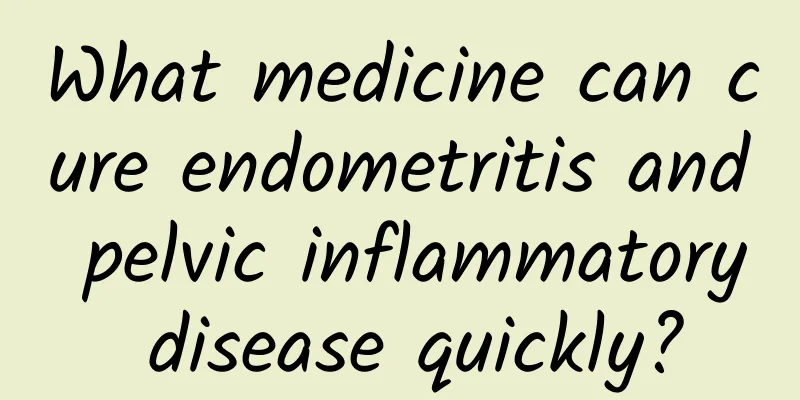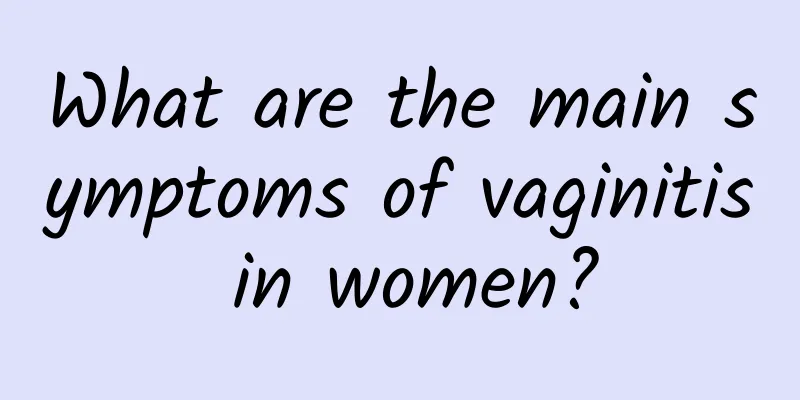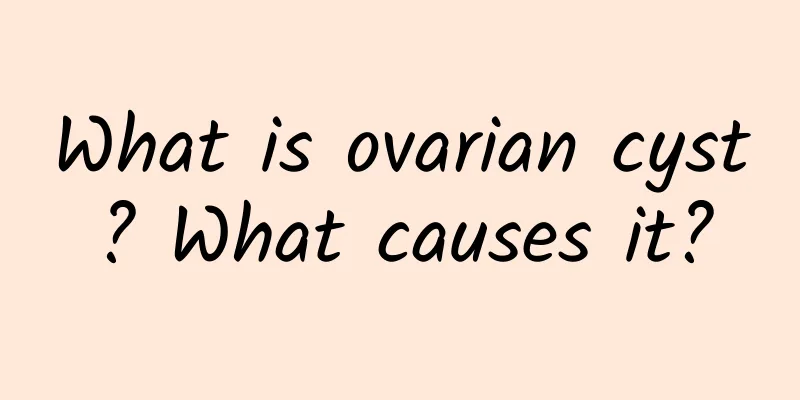What medicine can cure endometritis and pelvic inflammatory disease quickly?

|
The treatment of endometritis and pelvic inflammatory disease should follow the principle of anti-infection. Commonly used drugs include broad-spectrum antibiotics, anti-inflammatory drugs and Chinese patent medicines. At the same time, medication must be used in a standardized manner to prevent the condition from worsening. Pay attention to combining the doctor's guidance during medication and avoid blind self-treatment. 1. Choice of broad-spectrum antibiotics Endometritis and pelvic inflammatory disease are mostly caused by bacterial infections. Broad-spectrum antibiotics are the first choice to eliminate the source of infection. For example, amoxicillin-clavulanate potassium is often used for mild to moderate infections, ceftriaxone is suitable for more severe infections, and levofloxacin has strong activity against anaerobic bacteria and specific pathogens. These drugs must be strictly followed in terms of medication time and dosage, and should not be stopped early or missed to prevent drug resistance. 2. Use of anti-inflammatory drugs Anti-inflammatory drugs help relieve inflammation, improve pain and other discomfort. Commonly used ones include ibuprofen and diclofenac sodium. These drugs need to be taken after meals to reduce irritation to the stomach. During use, pay attention to observe whether there are gastrointestinal or renal side effects. If you feel uncomfortable, stop taking the drug immediately and seek medical attention. 3. Auxiliary treatment with Chinese patent medicine After the condition is confirmed, Chinese patent medicines can be used to assist in improving the efficacy, such as Penyanjing Capsules, Fuke Qianjin Tablets, Jinji Capsules, etc. These medicines are particularly suitable for patients whose inflammation has been basically controlled but who still have mild chronic discomfort. However, Chinese patent medicines should be avoided from being taken at the same time as antibiotics to ensure that the efficacy is complementary and reliable. 4. Auxiliary treatment and lifestyle adjustment In addition to drug treatment, lifestyle adjustments are also required. Increase water intake to promote metabolism, keep the area dry and clean to prevent secondary infection, quit smoking and drinking to avoid stimulating the reproductive organs, and proper bed rest will help recovery. Sexual intercourse should be avoided during treatment to avoid aggravating the condition or causing cross infection. If the symptoms persist or worsen, such as high fever or persistent severe pain in the lower abdomen, you should go to the hospital immediately for further professional treatment. Mastering the correct medication method and returning to the hospital on time can ensure that the disease is completely cured and prevent the occurrence of long-term complications. |
>>: What to eat to relieve pain for dysmenorrhea
Recommend
It’s easy to get fat in summer. What can you eat to lose weight quickly? Nutritionist Li Wanping reveals: 15 special foods for weight loss
Summer is extremely hot, and cold sugary drinks o...
How to distinguish the common types of vaginitis?
Vaginitis is a very familiar gynecological diseas...
What harm does pelvic inflammatory disease do to women's bodies?
I believe that female friends are familiar with p...
Symptoms of ovarian cysts in women
Ovarian tumors are common tumors of the female re...
Will vaginitis affect the menstrual cycle?
Will vaginitis affect the menstrual cycle? 1. Vag...
Is there a complete cure for Bartholinitis?
In daily life, people with Bartholinitis need to ...
What are the main symptoms of vaginitis in women?
Many female friends actually have some symptoms o...
How to eat well for patients with vulvar itching
I believe that many women have experienced the sy...
What does uterine fibroid sonogram mean? What are the sonographic manifestations of uterine fibroids?
What does uterine fibroids sonogram mean? Uterine...
The main cause of vaginitis
Vaginitis is a common disease in life. After suff...
How should women with premature ovarian failure be treated?
In addition to amenorrhea, only a few patients wi...
Lowering cholesterol, improving fatty liver, 4 major benefits of mulberries! Nutritionist Hong Ruopu: 4 tips for choosing mulberries
Office workers who often eat out for three meals ...
What are the common types of menopause?
Understanding the types of menopause is to help e...
How to treat breast pain before menstruation?
How to treat breast pain before menstruation? Pre...
2-week Danish diet: 600 calories a day for extreme weight loss
For people who have irregular meals and prefer hi...









